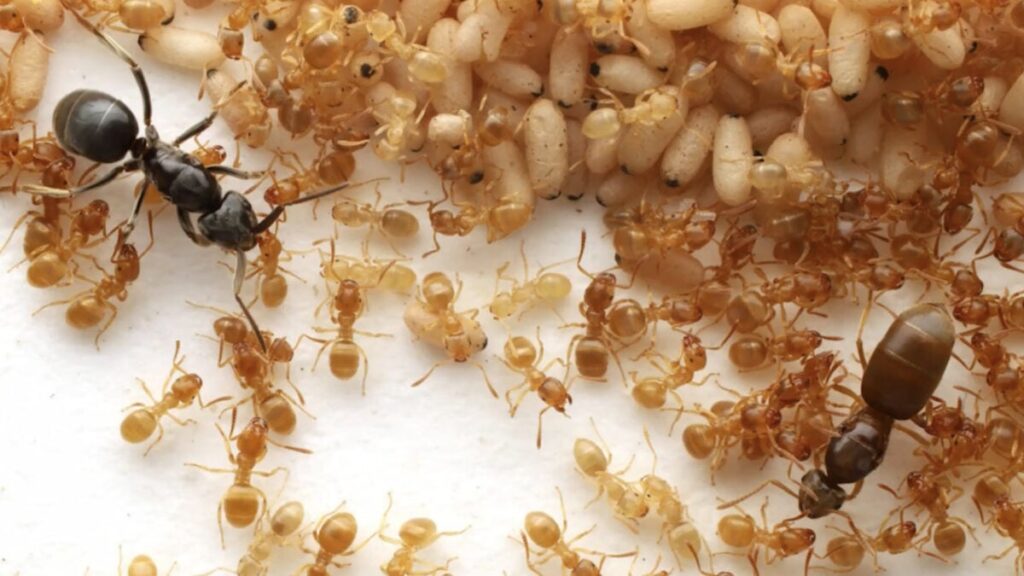Nature can get downright brutal in the most unexpected ways—especially when parasites are involved. For the well-organized society of ants, some parasites are known to topple the existing social order to enslave their hosts. But new research suggests that this unsettling behavior might not even be the most disturbing thing that parasitic ants are capable of doing.
In a paper published today in Current Biology, researchers captured how a parasitic ant queen essentially tricks worker ants into killing their own queen—their mother. Such instances of matricide—a behavior in which offspring kill or eat their mother—have been observed in nature before. This, however, is the first time that scientists have observed matricide that doesn’t benefit the mother nor the offspring but an unrelated, parasitic third party.
Too weird to be true?
A blog post by study lead author and “ardent ant enthusiast” Taku Shimada motivated the study, according to Keizo Takasuka, study senior author and an entomologist at Kyushu University in Japan. Shimada had filmed the parasitic ant species Lasius orientalis inducing matricide in host colonies, Takasuka explained to Gizmodo.
This pattern deviated from previously known forms of parasitism in ant colonies, which typically had the invading queen throttling or beheading the host queen. In the post, Shimada was able to document the moment that L. orientalis, commonly known in Japanese as “bad-smelling ants,” sprayed the queen with some kind of fluid.
“Then the [intruder] quickly fled the premises,” read Shimada’s article (translated from Japanese). This was because the “spraying action put the intruder at risk of getting attacked, too, and you can see that some worker ants are biting at the intruder.”
After a few hours of repeating this behavior, the colony dynamics began to shift, Shimada noted. Both queens were surrounded by worker ants—but the workers were chewing away at their own queen while treating the intruder as their leader.
“The workers’ attacks grew more violent the more fluid was sprayed on their real queen,” Shimada wrote. “What I found somewhat strange was that the worker ants, who also presumably were sprayed with the fluids, were not attacked. It was only the queen. Could there be some secret hidden in this fluid? To be killed by your own daughters…”
“When I read the blog post, I was so stunned that I was at a loss for words for a while,” Takasuka added.
A mystery in progress
The new paper serves as a formal description of Shimada’s observations, coupled with several long-term experiments replicated by Takasuka and colleagues in the lab. During these tests, the team confirmed that the parasitic species took advantage of ants’ particular sensitivity to smells, according to the paper.
The team has yet to chemically verify the fluid composition, although they believe it is likely some form of formic acid. The invader also rubs against host workers to disguise its smell before intrusion, the paper explained, revealing surprising sophistication in the parasites. Overall, this serendipitous discovery was akin to “platinum tickets to worlds no one has seen before,” Takasuka said.
“In temporary social parasites, eliminating the host queen is a crucial task, yet how this occurs is poorly known because it happens underground,” he said. “Life histories are full of astonishing adaptive strategies, most of which remain unknown to us—often because they are physically hard to observe or cannot be grasped from brief glimpses.”

